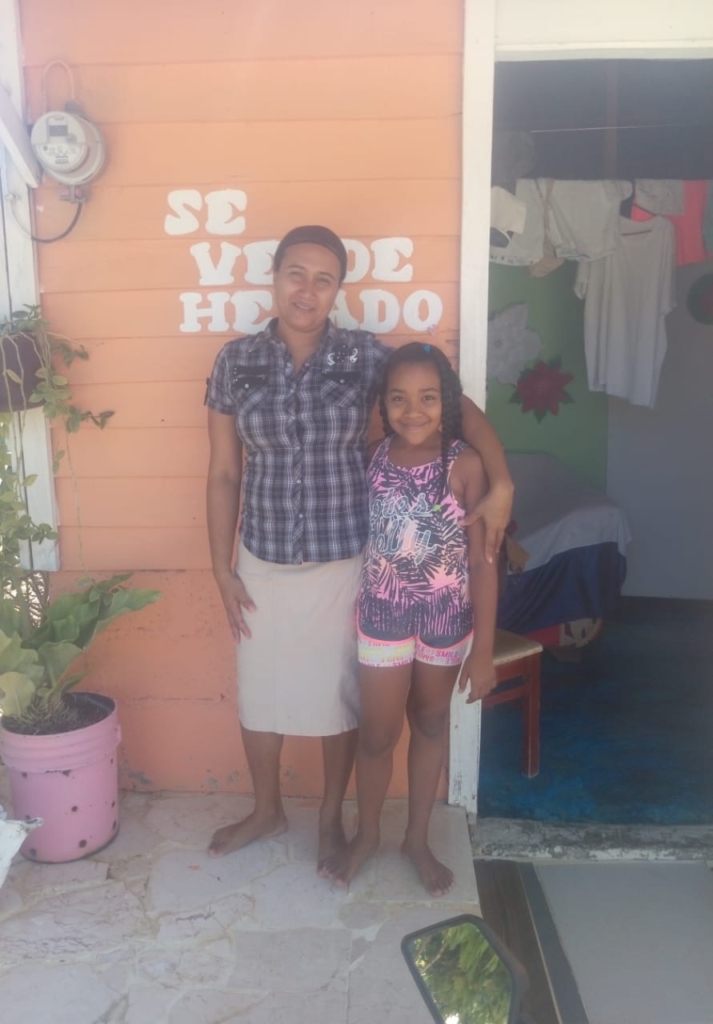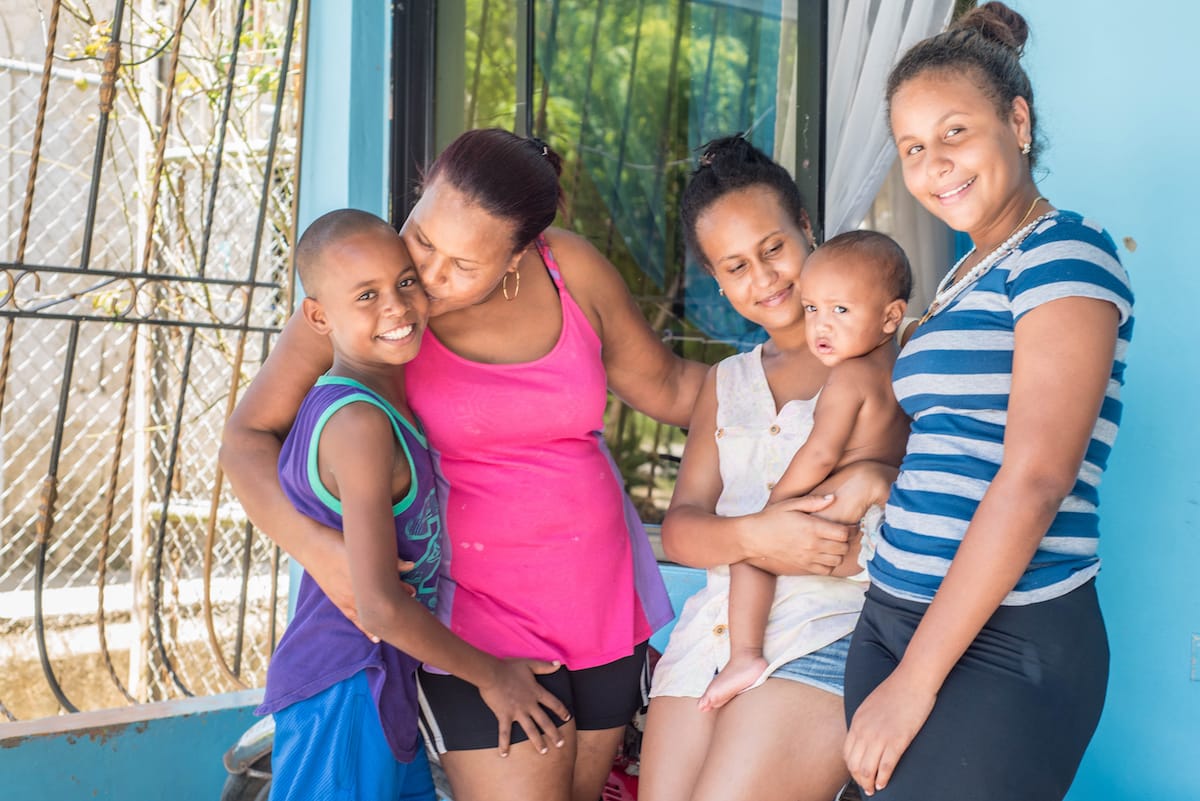ANTICIPATING & PREVENTING A HUMANITARIAN CRISIS
 Two years ago, after living 26 years in NYC, I decided to move to the North Coast of Dominican Republic in Cabarete, a welcoming, sunny and beautiful Caribbean beach town of 25,000 where locals and expats live in harmony. The town is also known as the kitesurfing, surfing and windsurfing Capital of the Caribbean. A watersport paradise, to me and to many. So surfing early in the morning, yoga at night and working during the day to create content for brands that make a positive impact felt pretty awesome (my “happiness sandwich”). It still does 😉
Two years ago, after living 26 years in NYC, I decided to move to the North Coast of Dominican Republic in Cabarete, a welcoming, sunny and beautiful Caribbean beach town of 25,000 where locals and expats live in harmony. The town is also known as the kitesurfing, surfing and windsurfing Capital of the Caribbean. A watersport paradise, to me and to many. So surfing early in the morning, yoga at night and working during the day to create content for brands that make a positive impact felt pretty awesome (my “happiness sandwich”). It still does 😉
But then, COVID-19 hit a few weeks ago. And besides the obvious health crisis, the hard economic stop and personal inconveniences that most of the world suffers already, an even more dangerous beast started to show its ugly head: the possibility of starvation for a large part of the local population. My neighbors. And the potential consequences for all members of the community, including myself.

A LOCAL YET GLOBAL PARADIGM:
Let me explain: the Dominican Republic is usually the most-visited destination in the Caribbean. Yet the COVID-19 crisis has forced the government to shut down frontiers and there is little near-term prospect of tourism returning, which traditionally accounts for 65% of local jobs in Cabarete.
Nationally, out of a total population of 10 million, over 9.6 million people dwell South of the island, but up here in the North Coast of the Dominican Republic there are less than 400,000 residents and their needs are consistently ignored by the central government. And with COVID-19 spreading, both central and statewide government resources are already strained servicing major urban centers.
Locally, 85% of the population is currently unemployed as a result of the nationwide lockdown and only 1,600 people benefit from food support from the local government. And in a country where the average salary for most workers (in normal times) is $150 to $250 USD/month, an increasing number of the community is becoming “food insecure”. In other words, people have less than three days worth of food, or funds for food, on any given day. And now, as they cannot work anymore, thousands in Cabarete are facing imminent food shortages as a result of the halted economy.
Now ask yourself: as a parent, how far would you go to feed your children in such a situation?
You may think that this is an isolated problem, far from home. But in fact it is the issue of hundreds of million of people on the planet right now, potentially billions, in developing countries who live day by day, paycheck to paycheck. Even in the US or in Europe, the neediest people do not have the means to stay home and wait for the crisis to disappear. They have to put food on the table, every day. And no wall is going to stop them from getting that food if despair and hunger pinch hard enough. By any means necessary.
OUR SOLUTION – A COALITION RESPONSE:
So I have decided, along with my small business team, to join forces with other professionals, local NGOs, community leaders, local elected officials and volunteers in order to create a predictable and sustainable response to the COVID-19 crisis in Cabarete district and to defuse the crisis before it blows up. But also design and field-test a scalable and replicable model that can be exported and adapted elsewhere in the world.
All parties are donating their time, resources, and providing coordinated ground support in a cohesive effort to:
- Identify food insecure, vulnerable members of the community through local community networks, and engage in targeted food distribution.
- Prevent food shortages from compounding human suffering, communal trauma, and potential security situations escalating to civil unrest.
- Provide fundraising tools, resources and audited accounting systems to help supplement strained local resources and fund food purchasing.
- Coordinate with municipal and Statewide agencies to create an intergovernmental network to keep a pulse on the area, develop escalation channels to the Central government & UNDP.
- Create a predictable and sustainable model response to COVID-19 food shortages on a local level that can be replicated by other communities in the rest of the world.
- Create a scalable and longer-term solution, and produce medium to long term NGO initiative policy goals, such as food sovereignty programs including harvest and yield community gardens on donated land, and other sustainable food-grow initiatives.
 FOOD PROGRAM:
FOOD PROGRAM:
Our food program consists of nutrient-rich Ration Packs (rice, beans, spinach, passion fruit pulp, bleach, soap…), with a cost basis of under $4.00 USD per person per week, or under $16.00 USD per family of 4 per week.
By joining hands in a coalition and lining up our skills and contacts we are able to source at distribution costs from supporting community supermarkets and farms, and get donations in nature. And, by working jointly with local food suppliers we are able to ensure safety guidelines of the Ministry of Health are followed to the highest industry standards.
100% of the money we receive goes toward the food purchase which we are getting at the lowest possible cost.
PILOT:
This week we have started distributing food Ration Packs in the neediest communities and we are planning to scale over the next days and weeks to start tackling the crisis as it expands – sizing our response in real time as the problem grows, testing our model in real life. Our objective is to improve our model as time goes by, productize it and then share it with the world in an open source fashion.
FUNDING:
Our next step is to create a sustainable and growing fundraising program and campaign, relying on the local expat community, the local business community and our international contacts, friends, family and business contacts. Directly and indirectly via social media.
I will keep you posted and may even ask for your involvement further down the road. For now, stay home, stay safe, and reflect on your blessings.



Leave A Comment